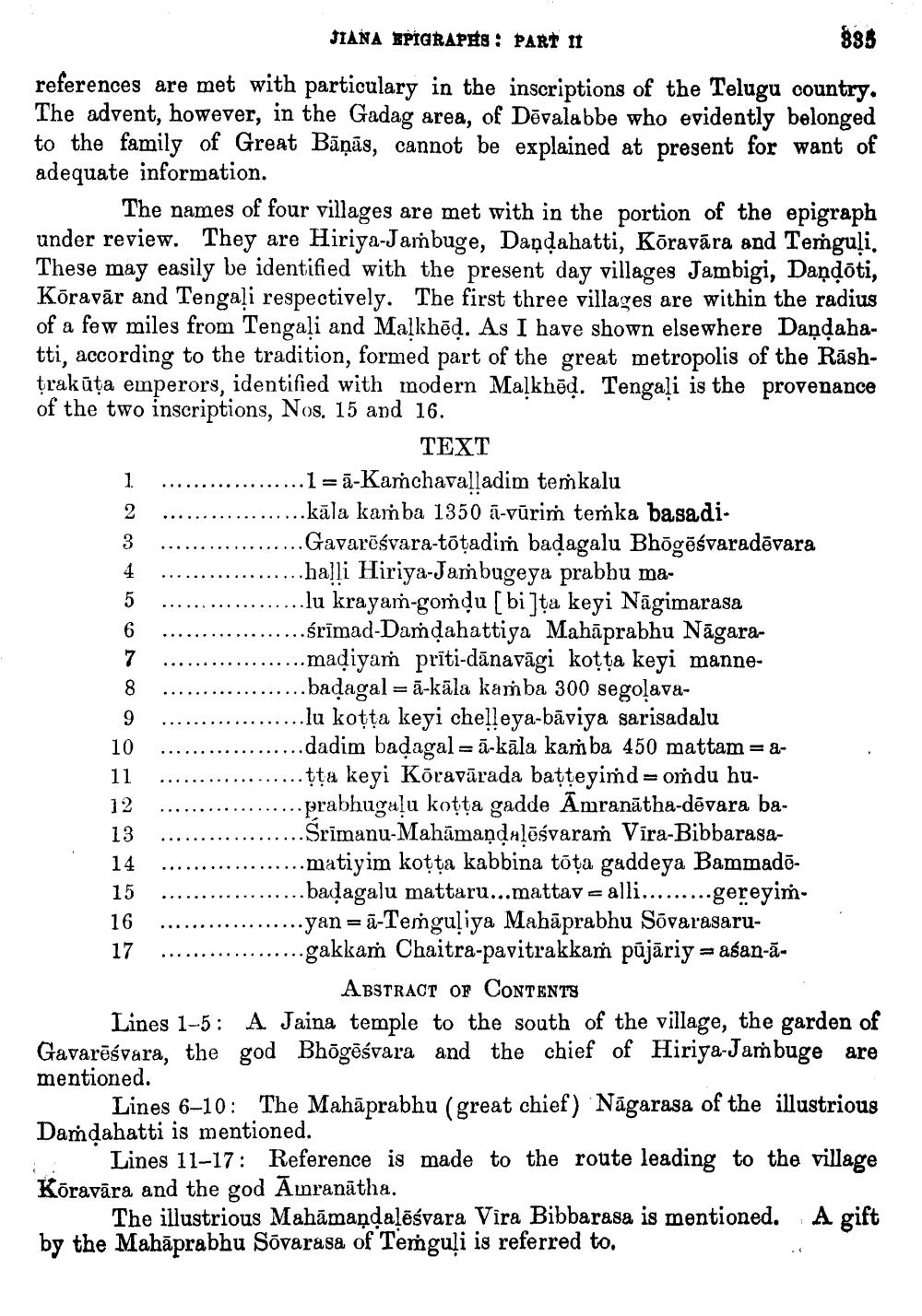________________
JIANA EPIGRAPHS : PART 1
883 references are met with particulary in the inscriptions of the Telugu country. The advent, however, in the Gadag area, of Dāvalabbe who evidently belonged to the family of Great Bāņās, cannot be explained at present for want of adequate information.
The names of four villages are met with in the portion of the epigraph under review. They are Hiriya-Jambuge, Daņdahatti, Kõravāra and Temguļi. These may easily be identified with the present day villages Jambigi, Daņdoti, Kõravār and Tengali respectively. The first three villages are within the radius of a few miles from Tengali and Malkhēd. As I have shown elsewhere Daņdahatti, according to the tradition, formed part of the great metropolis of the Răshtrakūța emperors, identified with modern Malkhöd. Tengali is the provenance of the two inscriptions, Nos. 15 and 16.
TEXT .1 = ā-Kamchavalladim teņkalu kāla kamba 1350 ā-vūriṁ teñka basadi. Gavarēśvara-tõtadiṁ baďagalu Bhōgēśvaradēvara .halli Hiriya-Jambugeya prabhu ma... lu krayam-gomdu [bi]ța keyi Nāgimarasa ..śrīmad-Daṁďahattiya Mahāprabhu Nāgara
..madiyaṁ prīti-dānavāgi kotta keyi manne...........ba
.baďagal = ā-kāla kamba 300 segolava.lu kotta keyi chelleya-bāviya sarisadalu
dadim badagal =ā-kāla kam ba 450 mattam = &...tta keyi Kõravārada batteyimd= omdu hu...prabhugaļu kotta gadde Amranātha-dēvara ba
Srimanu-Mahamandalāśvaraṁ Vira-Bibbarasa........ matiyim kotta kabbina tõța gaddeya Bammadē
.badagalu mattaru...mattav -alli.........gereyim.
...yan = ā-Temguliya Mahāprabhu Sõvarasaru17 ..................gakkam Chaitra-pavitrakkam pūjāriy = aßan-ā
ABSTRACT OF CONTENTS Lines 1-5: A Jaina temple to the south of the village, the garden of Gavarāśvara, the god Bhögēśvara and the chief of Hiriya-Jambuge are mentioned.
Lines 6–10: The Mahāprabhu (great chief) Nāgarasa of the illustrious Damdahatti is mentioned.
Lines 11-17: Reference is made to the route leading to the village Kõravāra and the god Āuranātha.
The illustrious Mahāmaņdalēśvara Vira Bibbarasa is mentioned. A gift by the Mahāprabhu Sõvarasa of Temguļi is referred to.
.....




